2022 Session Block B
Cross-Cultural Dialogue in WorkplaceSummary: This presentation will discuss the importance of cross-cultural dialogue and understanding cultural differences in order to achieve better communication within an organization. We will discuss main styles of communication such as high-context versus low-context, individualism versus collectivism, and how they can affect people's approach, especially in an international organization. Moreover, we will discuss how overly stressing on teamwork and being extroverted can adversely affect an organization by sidelining those who might possess the necessary knowledge while not being the best communicators in a group setting. And how to provide everyone with equal opportunity to express themselves even when they follow different communication styles. Objectives:
Presented by: Ati Alipour Ati Alipour is a New York attorney and mediator with a broad background in dispute resolution and the founder of Heris Law Firm. Ati has experience working as a mediation and conflict resolution consultant to the Office of the Ombudsman for the United Nations Funds and Programmes serving the personnel of five of the UN organizations i.e. UNDP, UNICEF, UNFPA, UNOPS, and UN-Women. She has also experience working as a Staff Attorney and Mediator at the Center for Dispute Resolution at the University of Maryland Carey School of Law. In this position, Ati supervised students and conducted mediations for the mediation clinic through referrals from the partnerships of the Clinic with the Maryland judiciary, and the Office of Civil rights, which includes the Equal Employment Opportunity Commission (EEOC) matters.
Team Pulse-Taking: Helping teams and managers understand areas of strengths and weaknessesSummary: How can ombudsmen help teams and managers understand exactly areas where they work well together, where tensions are, and how conflict is currently dealt with? The ombuds team at the UN Refugee Agency has developed and refined a type of conflict resolution intervention we referred to as, Team Mediation Surveys (TMS). The TMS asks team members to anonymously share their perceptions and experiences of their teams. Questions are formulated to give an understanding of various elements of team dynamics (such as communication, goals, psychological safety), allows respondents to report any incidences (experienced or witnessed) of positive and negative behaviors, and gives the respondents an opportunity to provide feedback to the team and to individuals. The results are analyzed and given back to, first to the managers, and then to the teams. The goals of the TMS are to help managers and their teams identify areas of strengths and weaknesses, to allow team members to feel that they are heard, and to help teams initiate conversations so they can work towards a more harmonious work environment. The presentation will begin by asking the respondent to think of their own work situations and team and will ask a series of questions that represents some of the types of questions that are asked in the TMS. Results from the audience will be shared and then presenters will then share how the TMS is typically executed, presented, as well as challenges and lessons learned. There will be an opportunity at the end for questions and suggestions for improvements. Objectives:
Presented by: Balint Balassa Balint Balassa began his career by observing the most well-known conflicts in the world: he studied, practiced, and taught drama and literature to children. Understanding drama and literature provides children with guidance for life and shows them how human relationships can develop, and sometimes, deteriorate. After joining UNHCR as a trainer and instructional designer, the scope of his work widened. He has trained thousands of colleagues from different cultures and life situations in conflict management, communication, mediation, and team building. Mr. Balassa joined the Ombudsman’s Office in 2016 as a Conflict Resolution Officer. With the team, Mr. Balassa has helped create a peer support network within the organization, has promoted a "speak-up culture" and continues to engage in conflict resolution and individual and team mediations within the organization globally. Here, what was fiction in the most remarkable pieces of literature, has become a reality. Together with his excellent colleagues in the Ombuds team, he strives to rise to the task of helping visitors in their often vulnerable and challenging situations, every day. Tina Hinh Tina Hinh is a certified mediator and is the Associate Conflict Resolution Office for the Office of the Ombudsman for the UN Refugee Agency. In addition to helping the organization resolve internal and interpersonal conflicts, Tina manages the data analysis and reporting on trends for the office, and helps manage the various team mediation initiatives taken by the office. She has a background in refugee protection, refugee empowerment, and resettlement, and has been with the organization for over a decade.
|

